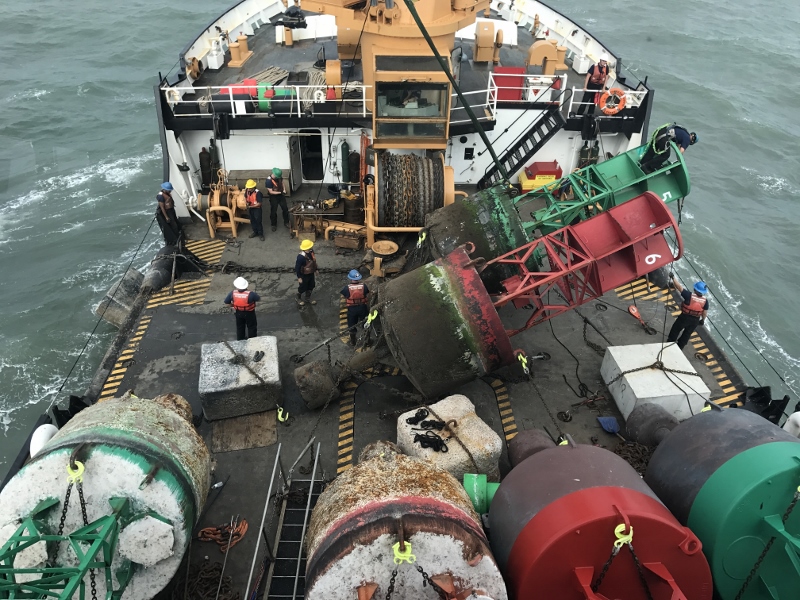Today, Coast Guardsmen on 68 cutters and at 63 ATON teams maintain more than 48,000 buoys, beacons and electronic aids that help mariners to safely navigate more than 25,000 miles of waterways and facilitate more than $5.4 trillion in economic activity every year.
This complex and critical mission doesn’t stop at our water’s edge. In addition to managing the U.S. Aids to Navigation System, the Coast Guard has shaped global navigation guidelines and policies at IALA since it was established in 1957. Coast Guard personnel from the Office of Navigation Systems, Office of Shore Forces, Navigation Center, Waterways Operations Product Line, and Office of Enterprise Architecture and Technology Innovation serve as members and elected leaders on the IALA Council, ATON Regulations and Management Committee (ARM), eNav Information Services and Communications Committee (ENAV), ATON Engineering and Sustainability Committee (ENG), and Vessel Traffic Services Committee (VTS).
This partnership and involvement with IALA ensures that the Coast Guard, America’s multimission maritime service, maintains its storied legacy of light by working with its international partners to make waterways safer, more efficient and more resilient.
All Coast Guard ATON professionals past and present celebrate this milestone day and recognize the critical role of safeguarding the U.S. Maritime Transportation System for all mariners.
Editor’s note: The content of this blog originally appeared in an official message to Coast Guard members on July 1, 2019. It was edited for Coast Guard Maritime Commons and posted by Lt. Amy Midgett. The original message is available here.




